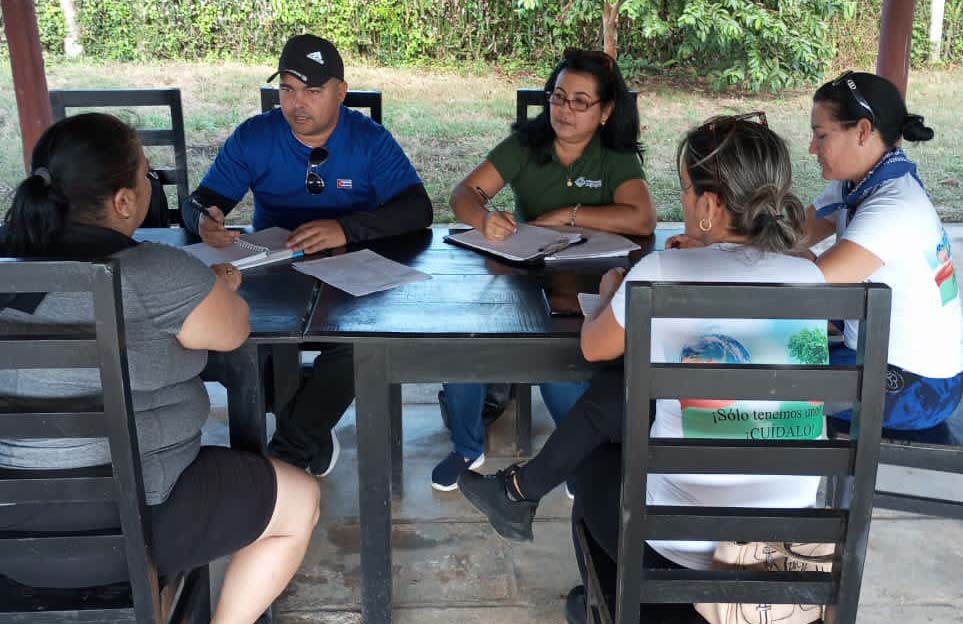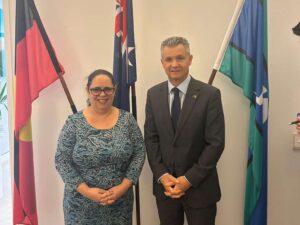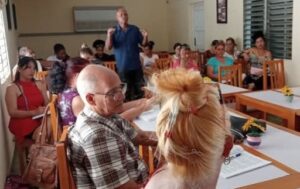Leading companies in the province of Ciego de Avila in the process of transition towards a circular economy and promoters of the Integrated Alliance «Together for Less Plastic Waste», promote the efficient management and handling of this ductile material to reduce environmental pollution.
The Territorial Delegation of the Ministry of Science, Technology and Environment (DT-Citma) highlighted the linkages of the High Density Polyethylene Pipes Company (Ciegoplast) with state and private sector entities to provide them with waste from its manufacturing process, which are used as raw materials in other productive activities.
Julio Valentín Santana Cruz, head of the local development project FciaPlastFV, belonging to the municipality of Florencia, said that Ciegoplast provided them in 2024 with around 25 tonnes of plastic offcuts that allowed them to manufacture some 24,000 metres of hoses, destined for efficient irrigation systems for agriculture, the main economic sector of the locality.
The waste from high-density polyethylene pipes also favoured the continuity of the manufacturing processes in the companies of Producciones Varias (Provari) and Cepillos y Artículos Plásticos Juan Antonio Márquez Fraga (Cepil), whose industrial products meet the demands of the local population.
Executives of Cepil, emblematic company of the Avila territory, emphasised that the transformed plastic resin constituted 42.2 percent (%) of the raw material used in the productions of the final year.
This significant proportion is equivalent to the reuse of more than 85 tons of recycled material, acquired mainly through Ciegoplast and the Empresa de Recuperación de Materiales Primas (ERMP).
They added that this was a solution to the limited capacity to import raw materials in the current economic context and made it possible to align with global environmental policies aimed at reducing resource extraction and plastic pollution.
It is important to note the importance of recycling this industrial material, as its discharge into the environment is ranked as the second largest environmental problem in the world, second only to climate change.
Ciegoplast has teamed up with the Construction Materials Company (Avilmat) to provide them with nylon bags of imported raw materials, allowing them to be reused as packaging for construction materials such as mortar, destined for investment programmes in the tourism sector, the manufacture of housing and sales to the population.
This practice generates economic benefits for the selling entity and ensures the acquisition of bags, at feasible prices, to keep construction materials in the wholesale and retail markets, in addition to avoiding the dumping of plastic waste into the environment and prolonging the useful life of nylon containers.
In addition to providing plastic waste to other entities, Ciegoplast uses this recycled raw material to manufacture parts and pieces that are used in hydraulic installations, such as irrigation systems for agriculture.
Other Ciegoplast products made from plastic are implements for the promotion of aquaculture and implements to improve the quality of life of people with physical and motor limitations.
A leader among entities of its kind in the country, the Raw Materials Recovery Company (ERMP) of Ciego de Avila, aligned with the new environmental policies, has ensured, through its 11 UEBs (one in each municipality and the one in the Jardines del Rey tourist destination), the recovery of more than a thousand tonnes of plastic waste.
The quantities recovered by the Avila ERMP include 76,082 tonnes of Parranda beer containers, 56,504 tonnes of high-density polyethylene pipes, 0,240 tonnes of PET knobs and 2,740 tonnes of Acrylonitrile Butadiene Styrene (ABS).
The latter are mainly used in the electronics and automotive industries and have a higher risk of becoming microplastics that contaminate different ecosystems and enter the food chain, causing damage to the health of different animals.
Tania Delgado Pestaña, head of the Department of Environmental Policy Instruments at the DT-Citma, stressed that the approval of Law 150 of 2023, «On the Natural Resources System and the Environment», and Resolution 96 of the same year, issued by the Citma, on circular economy and the reduction of single-use plastics, have represented significant steps in terms of environmental legislation.
He added that these regulations allow progress to be made in reducing plastic pollution and create capacities for Cuba to adapt to international regulations on the subject.
The Integrated Partnership «Together for Less Plastic Waste», implemented since 2024, aims to contribute to tackling plastic pollution in the country, particularly that caused by single-use plastics, and to promote their substitution.
It is established on a gradual basis, involving the non-state sector and taking advantage of territorial strengths.




